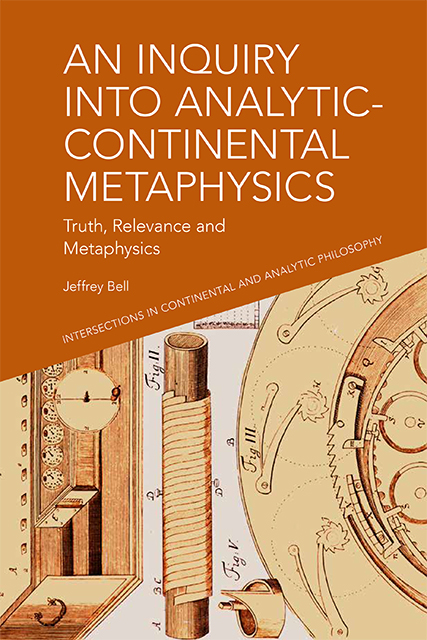Book contents
- Frontmatter
- List of Contents
- Acknowledgements
- Introduction
- §1 Problem of the New
- §2 Problem of Relations
- §3 Problem of Emergence
- §4 Problem of One and Many
- §5 Plato and the Third Man Argument
- §6 Bradley and the Problem of Relations
- §7 Moore, Russell and the Birth of Analytic Philosophy
- §8 Russell and Deleuze on Leibniz
- §9 On Problematic Fields
- §10 Kant and Problematic Ideas
- §11 Armstrong and Lewis on the Problem of One and Many
- 12 Determinables and Determinates
- 13 The Limits of Representational Thought
- 14 Learning from a Cup of Coffee
- 15 Carnap and the Fate of Metaphysics
- 16 Truth and Relevance
- Conclusion
- Bibliography
- Index
§3 - Problem of Emergence
Published online by Cambridge University Press: 25 October 2023
- Frontmatter
- List of Contents
- Acknowledgements
- Introduction
- §1 Problem of the New
- §2 Problem of Relations
- §3 Problem of Emergence
- §4 Problem of One and Many
- §5 Plato and the Third Man Argument
- §6 Bradley and the Problem of Relations
- §7 Moore, Russell and the Birth of Analytic Philosophy
- §8 Russell and Deleuze on Leibniz
- §9 On Problematic Fields
- §10 Kant and Problematic Ideas
- §11 Armstrong and Lewis on the Problem of One and Many
- 12 Determinables and Determinates
- 13 The Limits of Representational Thought
- 14 Learning from a Cup of Coffee
- 15 Carnap and the Fate of Metaphysics
- 16 Truth and Relevance
- Conclusion
- Bibliography
- Index
Summary
Another way to account for a new phenomenon is as a property that results from the systemic interactions of elements that then give rise to a property that is irreducible to any of these elements. An art dealer opens a gallery in an undeveloped warehouse district of a city. In time the gallery becomes popular. A few other galleries open in the same area, and before long the ‘warehouse district’ becomes a new area of town that is known for its art and cultural activities. This new property of the city is irreducible to any one gallery or venue, but is rather a property that emerges if there is a sufficient number of galleries and cultural events. Once the emergent property emerges, it can in turn have effects independent of the individual elements. People may now be drawn to the warehouse district in order to participate in its art scene, or the city as a whole may become known for its art scene and attract more residents as a result. The behaviour of ant colonies, multi-celled organisms, conscious life, among many other phenomena, have all been explained in terms of emergent properties, properties that are new and irreducible to the phenomena from which they emerge, a categorial novum as Nicolai Hartmann (2012) put it. At this point a variation of the problem of relations appears, for we still have the problem of explaining the relation between the emergent property and the elements from which this property emerges. A consequence of this problem is that critics will argue, along reductionist lines, that there is no true distinction between emergent properties and their underlying elements. David Lewis, as we will see, will adopt a version of this criticism of emergent properties (see §11), while Jessica Wilson will argue for a nonreductive naturalism that embraces key aspects of emergentism (see §12).
- Type
- Chapter
- Information
- An Inquiry into Analytic-Continental MetaphysicsTruth, Relevance and Metaphysics, pp. 17Publisher: Edinburgh University PressPrint publication year: 2022



